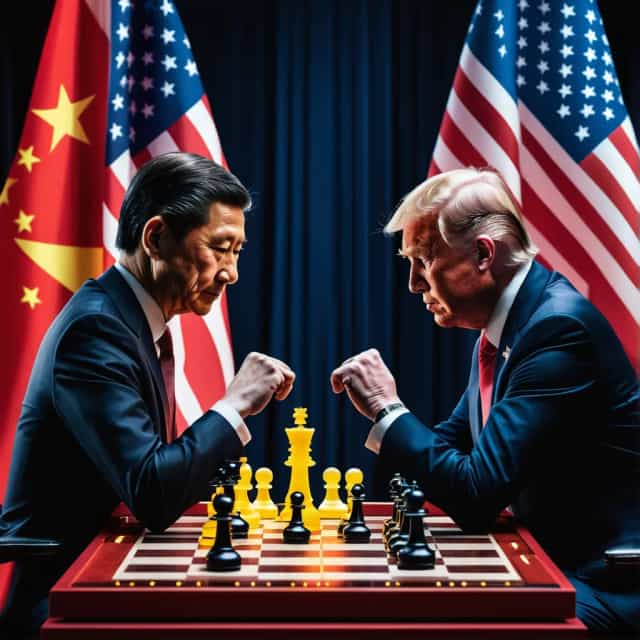
Image source: Block Media
BlackRock's Tokenized Money Market Fund 'BUIDL': A Catalyst for Blockchain-Driven Financial Innovation
BlackRock's launch of its tokenized money market fund, 'BUIDL,' marks a transformative step in integrating blockchain technology with traditional finance. Positioned as a trailblazer, BUIDL not only underscores the growing adoption of asset tokenization but also lays a foundational blueprint for reshaping global financial infrastructure.
A recent report by Koscom, titled Digital Asset Technology Trends, highlights the revolutionary nature of BUIDL, introduced in 2024. The fund tokenizes ultra-short-term assets such as U.S. Treasury bills and repurchase agreements (RPs), fostering real-time transparency and operational efficiency. Using smart contracts, token holders benefit from daily interest payouts while gaining insight into collateral conditions and transaction data.
Koscom described the BUIDL fund as "the first institutional model to seamlessly unify the stability of traditional finance with blockchain efficiency." They further emphasized that this initiative, merging cutting-edge blockchain capabilities with conventional financial systems, could guide both financial institutions and regulators as they develop future-focused asset tokenization strategies.
Elevating Financial Transparency and Operational Efficiency
BUIDL extends far beyond its role as a simple investment vehicle. It exemplifies how blockchain technology can optimize institutional workflows. BlackRock integrates BUIDL with platforms like JPM Coin and blockchain-based Treasury trading systems to enhance transparency and streamline processes such as collateral management and real-time settlement.
By tackling inefficiencies and obscurities inherent in traditional financial systems, BUIDL aligns with blockchain’s core strengths of real-time liquidity, automation, and adaptability. The initiative is aimed at fostering trust and operational clarity while setting a new benchmark for blockchain-enabled finance.
The Global Momentum Behind Tokenization
The movement toward tokenization is not limited to BlackRock. Industry peers like Franklin Templeton have been utilizing blockchain to operate their money market funds, while financial heavyweights such as JPMorgan are advancing tokenized solutions for interbank payments and securities lending.
This growing embrace of blockchain by traditional financial institutions signals that asset tokenization is no longer a fringe experiment—it is evolving into a core pillar of global capital markets. With its potential to increase liquidity, reduce transaction costs, and enhance transparency, tokenization is proving to be a transformative mechanism for modern financial ecosystems.
BUIDL’s Role in Expanding Real-World Asset Tokenization
BUIDL’s impact extends into decentralized finance (DeFi), where it bridges the gap between traditional finance and blockchain ecosystems. The fund demonstrates how tokenized traditional assets can serve as collateral, liquidity pool components, and foundational assets for derivatives in DeFi applications.
Koscom projects significant growth in the tokenization of real-world assets (RWAs), such as government bonds, corporate bonds, and equities, driven by initiatives like BUIDL. Partnerships with forward-thinking platforms like Securitize and Circle exemplify how permissioned DeFi ecosystems can work in harmony with institutional finance, enhancing both liquidity and accessibility.
South Korea’s Lag in Digital Asset Integration
While global leaders like BlackRock pave the way for blockchain advancements, South Korea risks falling behind in adopting digital asset infrastructure. The country faces uncertainty in key areas, such as the issuance and regulation of Korean won-backed stablecoins. Recent shifts in policy oversight—from the Financial Services Commission to the Ministry of Economy and Finance—have prompted concerns over delays in enacting comprehensive digital asset frameworks.
A digital asset industry expert expressed concerns: "South Korea’s lack of regulatory clarity is pushing domestic companies and investors toward foreign platforms. Beyond regulations, discussions must tackle specific issues like network selection and investor protection mechanisms to ensure competitiveness."
As international institutions advance their blockchain infrastructure, South Korea's hesitation jeopardizes its ability to capitalize on this emerging trend. The expert added, "Global financial systems are already transitioning to blockchain. If Korea fails to align with these developments, domestic reliance on foreign platforms will deepen, weakening the country's position within global markets."
Final Thoughts
BUIDL epitomizes the potential of blockchain to modernize financial systems, transforming inefficiencies into opportunities for innovation. By spearheading advancements in tokenization and DeFi integrations, BlackRock is setting a precedent for the financial industry's next chapter.
Yet, for countries like South Korea, time is of the essence. The global transition toward blockchain-based market infrastructure is accelerating, leaving little room for delays. To thrive in this new paradigm, nations and institutions must act boldly, leveraging tokenization’s transformative potential to remain competitive and relevant in an increasingly interconnected financial world.
Related Reads:
- RWA Market Surpasses $40 Trillion as Private Loans and Treasury Bonds Lead Growth
- [UDC 2025] From Payments to Investments: RWA Market Evolves with Treasury Bonds and Equities
For more updates, follow The Block Media’s Telegram channel or stay informed through The Block Media on Google News.










